It’s the New Year which means New Year’s Resolutions are in full swing! One of the top resolutions every year: getting organized. We are what our habits are and that includes organizing. Getting and staying organized can be a challenge especially if you are working full-time, running a business, or trying to get kids to practice on time. Nevertheless, there are number of actions you can take at this very moment to enhance your organizational habits. We’re going to explore six good habits for achieving better organization.
Affiliate Disclosure:
We want to be transparent and inform our users that some of the links on this website are affiliate links. This means that if you make a purchase through these links, we may earn a commission, at no additional cost to you. We only recommend products or services that we believe will add value to our readers. Your support through these affiliate links helps us maintain and improve our content. Thank you for your support!
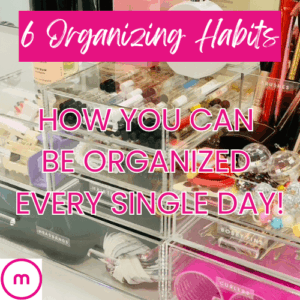
WHAT IS A HABIT?
A habit is a routine or behavior that is regularly repeated and tends to occur unconsciously. Habits are often formed through repetition and reinforcement, and they can be both positive and negative.
Positive habits contribute to personal development and well-being, while negative habits can be detrimental to one’s health, productivity, or overall happiness.
Understanding how habits work can help make positive changes to your life by intentionally creating and maintaining beneficial habits or breaking bad ones.
Cultivating good habits can contribute to personal growth, increased efficiency, and overall well-being.
As kids, every night our mom would ask us:
“Have you washed your face and brushed your teeth?”
Even now, I find it impossible to go to bed without doing these tasks.
HABITS LIFECYCLE
In 2018, I read Charles Duhigg’s “The Power of Habit” and found it incredibly powerful. If you haven’t read it yet, I highly recommend it; it provides insights into understanding yourself and why you do what you do.
There is a cycle of life when it comes to habits. First, there is a trigger or cue, then there is a routine, and finally a reward.
The cue is a signal that initiates the habit, the routine is the behavior itself, and the reward is the positive outcome or satisfaction gained from performing the behavior. Over time, the brain associates the cue with the reward, reinforcing the habit loop.
A book that has resonated even more with me than “The Power of Habit” is “Atomic Habits” by James Clear. He explains habits in simple terms and how to create and build new ones.
We are going to use my habit of washing my face and brushing my teeth at night to explain his theory.
- My trigger is getting ready for bed.
- The routine is washing my face and brushing my teeth
- I’m rewarded with a clean face and mouth before going to bed.
The reverse effect works in the morning too. I’m triggered by getting out of bed, the routine is washing my face and brushing my teeth and the reward is having a clean face and mouth.
It’s the reward that drives us to do what we do.
There are nights to this day when I don’t want to wash my face and brush my teeth because I’m tired and want to go to bed. Why do I keep doing it even when I’m tired? It’s the reward, I love the feeling of being clean before going to bed.
MENTAL TIPS FOR BREAKING BAD HABITS
Saying no to something now, means I’m saying yes to something else. For example, saying no to clothes you don’t wear or love means saying yes to a closet filled with items that fit, flatter, and make you feel confident.
Some more examples include:
- Saying no to old or unused products cluttering your bathroom means saying yes to a spa-like environment where everything you need is easily accessible and beautifully organized.
- Saying no to keeping unnecessary documents or supplies means saying yes to a streamlined, productive workspace where you can focus on your priorities.
When you say no, you create opportunities for alignment and simplicity in your life. It’s not just about giving up something—it’s about gaining the freedom, clarity, and peace that come with being intentional. Each “no” to clutter and chaos is a “yes” to an organized, meaningful, and balanced life.
Resist the temptation.
It’s easy to fall into the trap of purchasing items on a whim, especially when sales or trends make them seem irresistible. But resisting that temptation means saying yes to preserving your space and budget. Before buying, ask yourself:
- Do I truly need this?
- Do I have a place for it?
- Does it align with my long-term goals for organization?
Holding onto items because “I might need this someday” often leads to clutter. Trust that if you need something in the future, you can likely borrow or replace it. Letting go now creates room for the things you actively use and love.
There are good habits and bad habits. When you focus on creating more good habits, you’ll start to see the bad habits eventually fade away on their own. It is what will ultimately help you succeed in life.
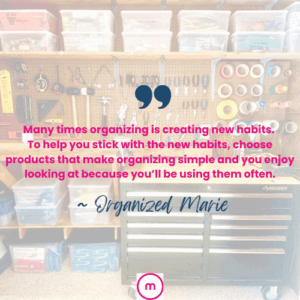
GOOD HABITS THAT WILL KEEP YOU ORGANIZED
1. MAKE YOUR BED
Making your bed every morning sets the tone for the day. If you don’t have time to make your bed because you don’t have time, the rest of your day is going to be off track and you’ll feel unorganized.
When you make your bed, it’s a sense of completion and it’s like the horn blowing off saying it’s time to start your day. The second you roll out of bed, do it immediately.
2. HANG UP YOUR CLOTHES
It’s easy to come home after a long day of work and change out of your work clothes and put them on the bed or floor. It only takes seconds to do so but at night you’ve made yourself believe that it’s going to take 5 minutes and you are too tired.
Put them away immediately when you change out of them, you’ll be happier you did and won’t end up with a pile of clothes on the floor at the end of the week.
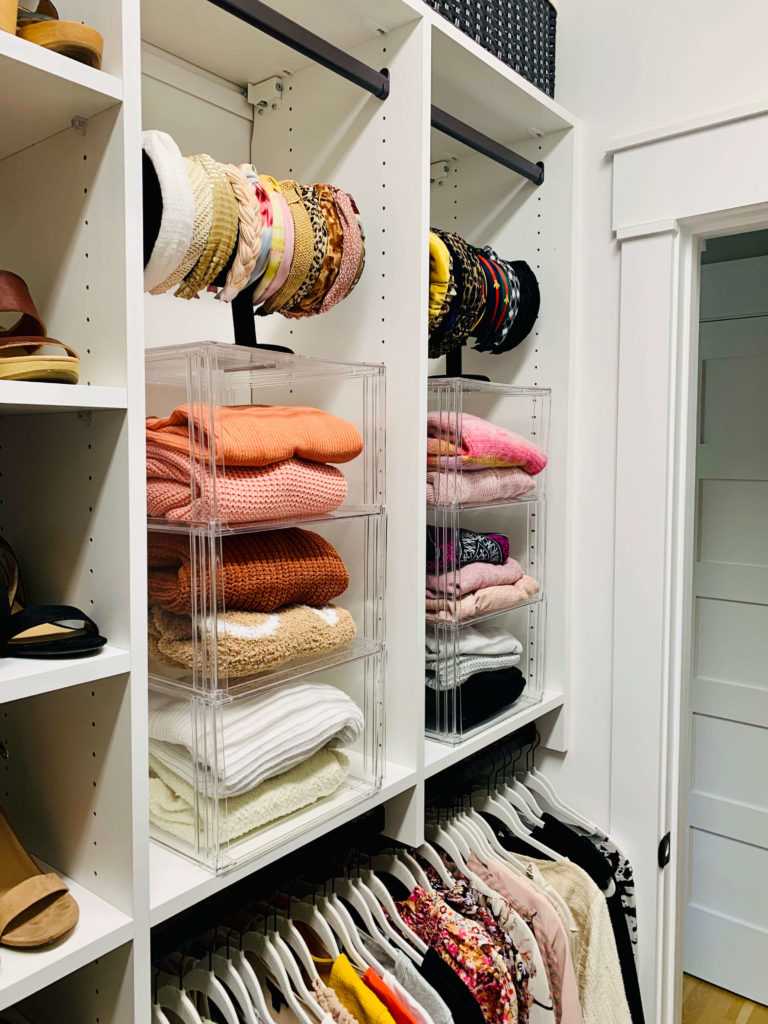
3. ADAPT THE “First In, First Out” FOR PANTRY ITEMS
When adding new groceries to your pantry, place older items at the front and newer ones at the back. This habit ensures that food is used before it expires, reduces waste, and keeps your pantry organized and easy to navigate.
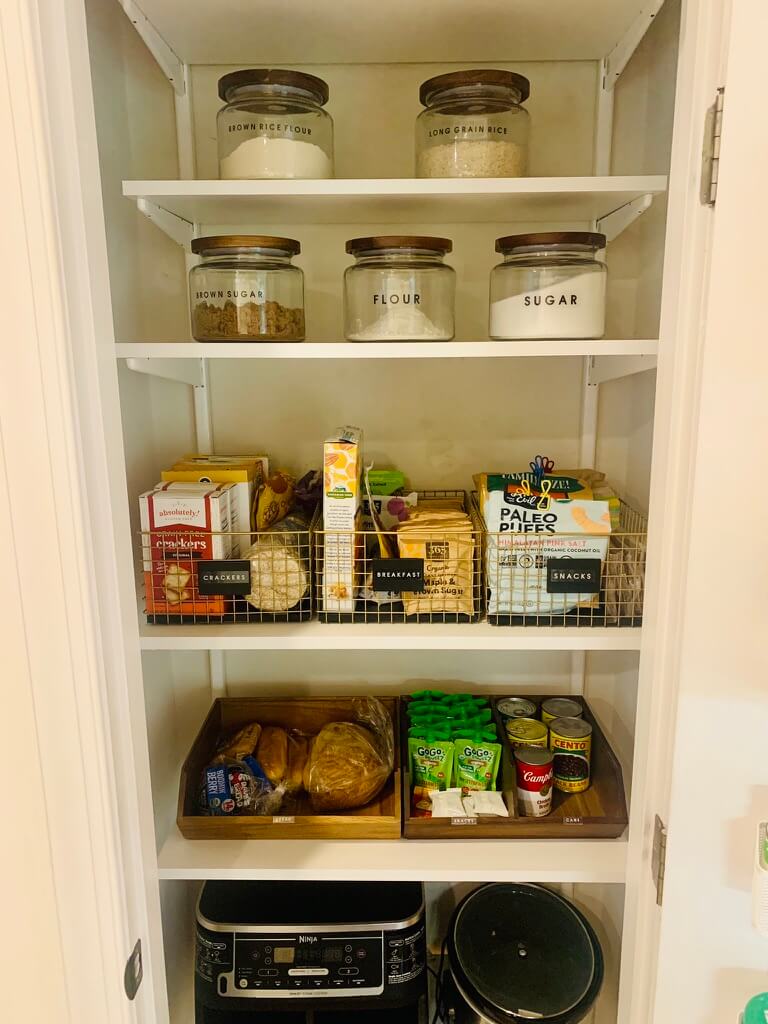
4. SORT MAIL AND PAPERWORK IMMEDIATELY: AVOID PAPER PILES
Create a habit of sorting mail and documents as soon as they enter your home. Use categories like “to-do,” “to file,” and “to recycle.” This keeps counters and desks free of paper clutter.
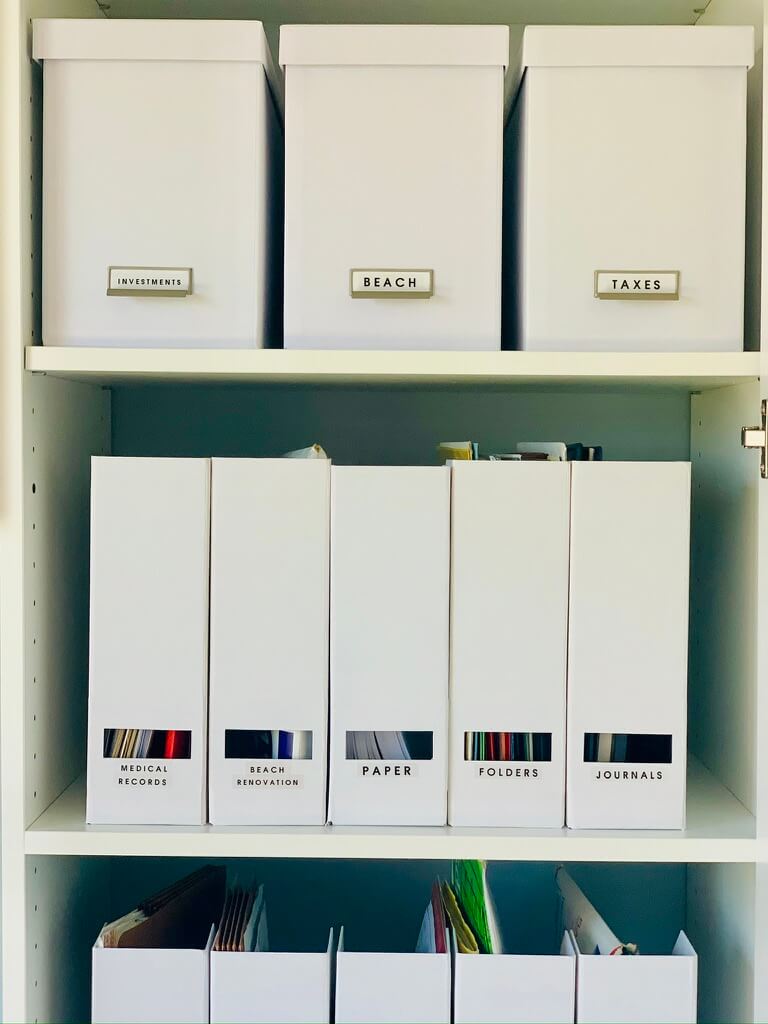
5. KEEP BATHROOM COUNTERTOPS CLEAR
After your morning or evening routine, return toiletries to their proper place. Wipe down the sink and counter, and ensure drawers or organizers are used effectively to keep the space clean.
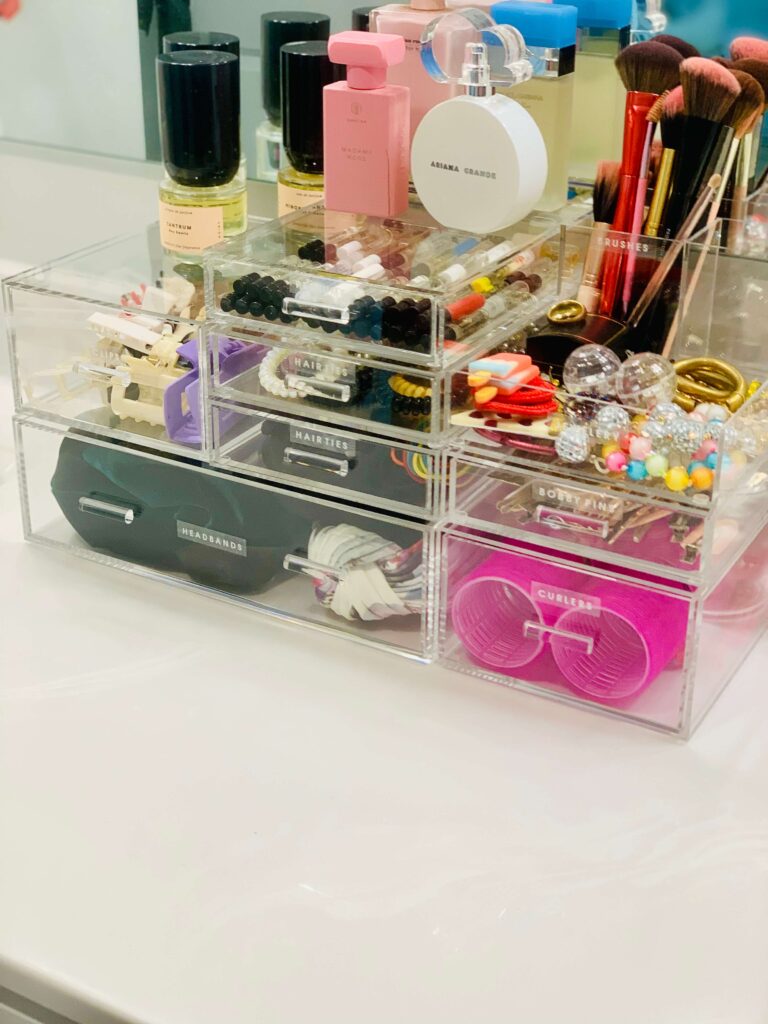
6. HANG UP YOUR KEYS
Misplacing your keys is frustrating. Invest in a key holder and hang them up every single time. The best place for it is right by the door so it’s the first thing you do when you get home. One of the toughest times to remember to do this is when you bring in groceries from the car.
Your keys are in your hand and then you start to unpack the groceries and forget to hang them up. Make it a habit to hang up your keys the second you want in the door.
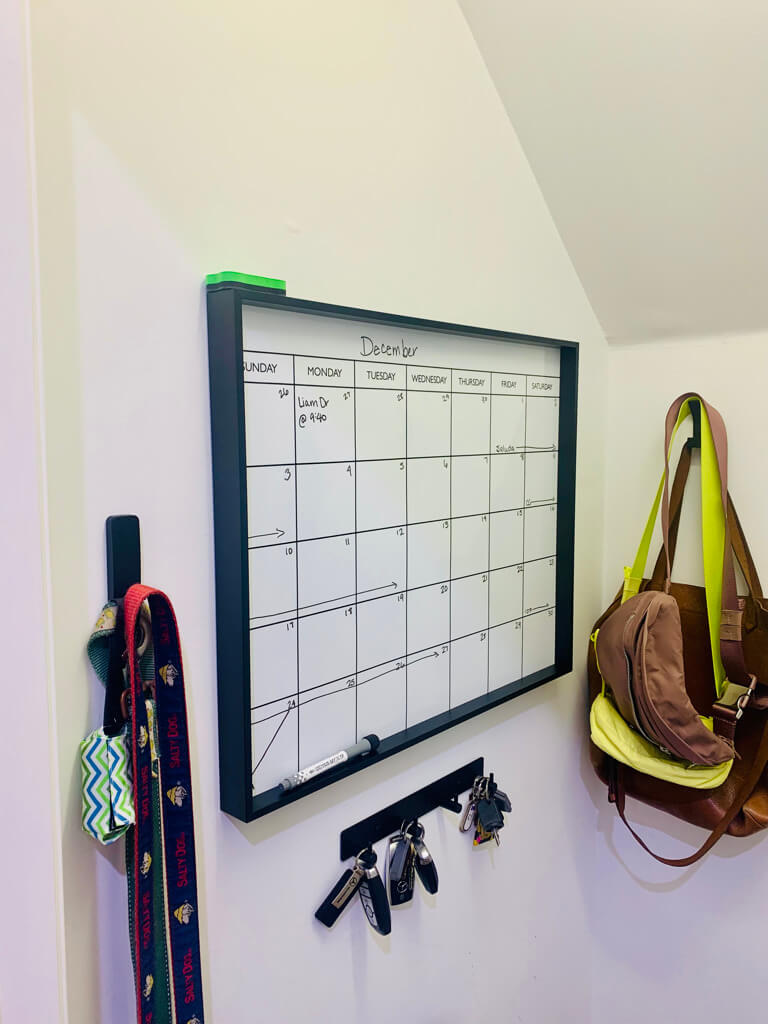
If you are reading this at home, you can complete four of these tasks right now: Go make your bed, hang up your clothes, hang up your keys, and clean out the dishes in the sink.
Your house will be cleaner and your head will be clearer because you’ll have greater focus.
MAKING A CHANGE
Creating a new habit or breaking an old habit is hard, it takes hard work and discipline. Start with one habit and build from there. Once you have one habit down, add another one and keep going until the list is complete.
It takes on average 66 days to create a new habit, that’s just over two months.
To help you create a new habit, ask a friend to help you. Tell them what you are trying to achieve and have them be your accountability partner.
Write it down, when we write things down we are committing ourselves. Make it a goal to create new habits.
There’s a quote out there that says:
No one succeeds alone. Never walk alone in your future paths.
We all try to do it on our own but it takes a village. There is much we can learn from others if we are willing to ask for help.
FINAL THOUGHTS
Habits are the cornerstone to success and help keep us organized. When we recognize our triggers, we can easily break habits and replace them with good ones.
List out your bad habits and write down good habits you can do to replace the bad ones. If you don’t make your bed daily, write it down and replace that habit with making your bed daily. It’s as simple as that, don’t overthink it.
Track your progress to help keep the momentum going, and reward yourself once you’ve reached your goal.
The simple daily tasks of making your bed every day, hanging up your clothes, keeping the sink empty, planning your day, tracking your expenses, and hanging up your keys will keep you organized every day.
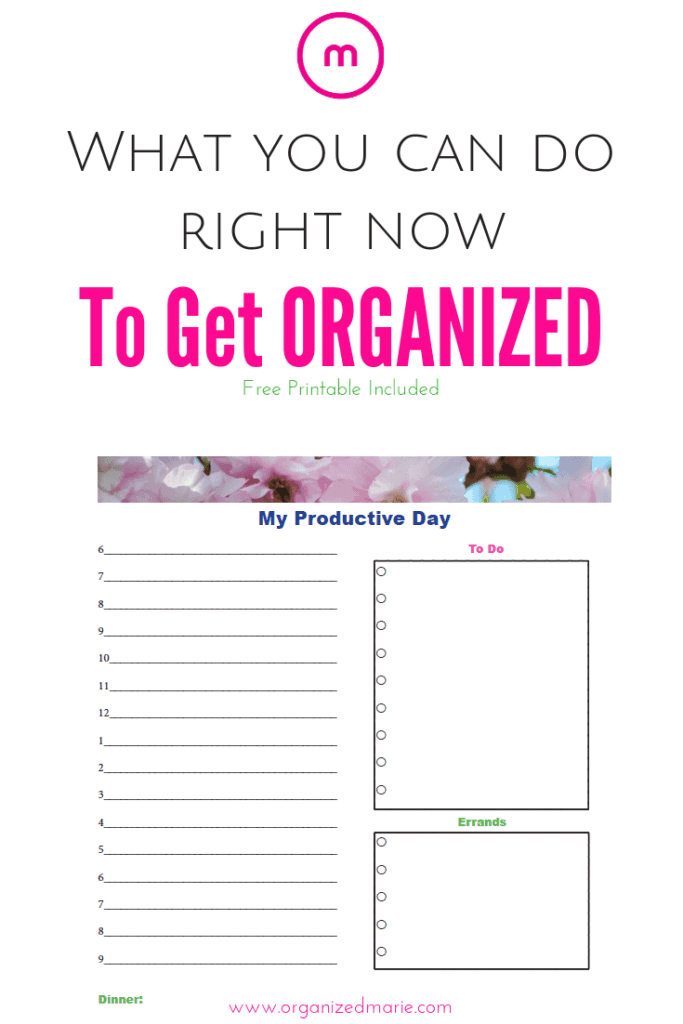
+ show Comments
- Hide Comments
add a comment